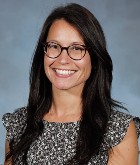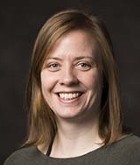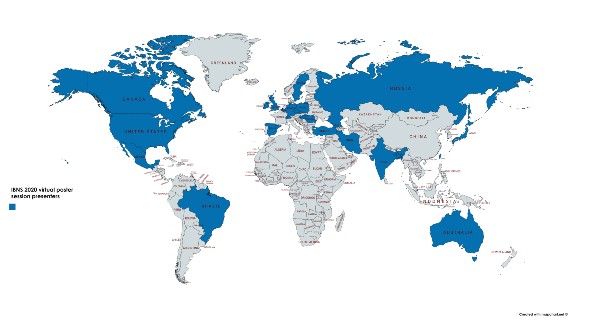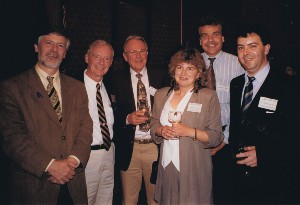|
In this Issue...
- IBNS President’s Perspective on 2020 – Dr. Jared Young
- Committee Report: From the Education and Training Committee
- Committee Report: From the Ethics and Diversity Committee
- Committee Report: From the Finance & Fundraising Committee
- Committee Report: From the Membership & Communications Committee
- A Tribute to the Scientific Footprint of Linda P. Spear
- The Year in Newsletters
- Member News
IBNS President’s Perspective on 2020 – Dr. Jared Young

Dr. Jared Young, IBNS President
Well this has been a year has it not? 2020 has been amongst the most challenging to us all, including the unfortunate cancellation of our 2020 Glasgow meeting. Needless to say, we at IBNS were hugely disappointed, me as much as most. We made that decision early in best faith and in retrospect it was the right decision for us all, leading to additional challenges we have met together as a Society. First difficulties included transitioning those speakers that chose to, from 2020 to 2021, and importantly also accommodating for our Travel Award winners as much as possible. We have re-positioned ourselves for hosting a meeting in Glasgow 2022; so we will certainly get back there, do not worry.
The future of IBNS is in our trainees and with that in-mind, we created an online poster session led by Dr. Julianne Jett and her team, aimed at trainees to encourage their presenting and discussing their data, in addition to improving their network, and teaching all more about IBNS. The session was very well attended from people around the world and while the time zones proved an interesting challenge, the session was well-received. This adaptation is one of the lessons we have learned and will take forward into future IBNS meetings to encourage remote attendance of future main and potential regional meetings. Additional lessons include more regular meetings of our Council and Committees over Zoom, utilizing the technology brought to us by the Covid-19 pandemic. Future IBNS meetings will therefore utilize hybrid models of partial on-line and in-person for meetings, while continuing electronic meetings to keep everyone in regular contact despite the vast differences in location and time zones.
While reacting to these events has proven challenging, but with positive outcomes, these past 2 years we’ve also been working hard to improve Diversity & Inclusivity within IBNS, with our new Ethics & Diversity Committee first led by Dr. Amanda Kentner and now Dr. Debbie Bangasser. This committee has worked synergistically with every other IBNS committee to improve Inclusivity opportunities throughout IBNS. This work resulted in a R13 grant application from IBNS Fundraising Committee (particularly Drs. Jill Silverman and Stacey Rizzo), to provide for Travel funds and Diversity training opportunities for IBNS members. We hope for success in obtaining these funds with several programs we will employ in the future to improve training and diversity opportunities for IBNS members.
Hence, while 2020 has been difficult, there have been positive learning experiences and hopes for the strengthening our Society for the future of IBNS. Happy Holidays to all, and we look forward to what 2021 will bring us together.
Back To Top
Committee Reports:
From the Education and Training Committee
 Dr. Zackary Cope is a Research Scientist working with Dr. Stacey Rizzo in the NIH consortium for Model Organism Development and Evaluation for Late-Onset Alzheimer’s Disease (MODEL-AD). His research focuses on characterizing translatable biomarkers in novel AD-relevant mouse lines and utilizing them to test novel drug candidates. Dr. Cope is the current Chair of the IBNS Education and Training Committee. Dr. Zackary Cope is a Research Scientist working with Dr. Stacey Rizzo in the NIH consortium for Model Organism Development and Evaluation for Late-Onset Alzheimer’s Disease (MODEL-AD). His research focuses on characterizing translatable biomarkers in novel AD-relevant mouse lines and utilizing them to test novel drug candidates. Dr. Cope is the current Chair of the IBNS Education and Training Committee.
 Dr. Rachel Navarra is an Assistant Professor of Cell Biology and Neuroscience at Rowan University Graduate School of Biomedical Sciences. Her laboratory focuses on understanding and improving treatment strategies to address cognitive dysfunction associated with neuropsychiatric disorders and following traumatic brain injury. Dr. Navarra is the current Co-Chair of the IBNS Education and Training Committee. Dr. Rachel Navarra is an Assistant Professor of Cell Biology and Neuroscience at Rowan University Graduate School of Biomedical Sciences. Her laboratory focuses on understanding and improving treatment strategies to address cognitive dysfunction associated with neuropsychiatric disorders and following traumatic brain injury. Dr. Navarra is the current Co-Chair of the IBNS Education and Training Committee.
The IBNS Education and Training Committee is working towards promoting the participation, achievement, and diversity of trainees in the Society. These efforts include providing assistance to students and postdocs for travel to the annual meeting, implementing training programs within the field, and encouraging continued engagement with the Society and attendance at future meetings. This year the E&T committee worked closely with the Ethics and Diversity Committee to make a number of improvements to our travel award application and evaluation process with the goal of improving the diversity among travel awardees.
Due to the unforeseen circumstances brought on by the global COVID-19 pandemic, several components of our Travel Award process were further modified for the 2021 hybrid meeting. The Travel Award application deadline has been moved to January 6th, 2021. All qualified applicants will be eligible to win a 2021 Travel Award for the hybrid meeting regardless of their ability to attend the meeting in person. All Travel Award winners will receive an award certificate, free registration to the 2021 meeting, 1 year membership, participation in the mentorship program, as well as the opportunity to participate in the Travel Award Blitz presentations and attend all other trainee events held during the meeting. Travel Award funds will be limited to reimbursement only for in person travel to the meeting. Award applications will be scored and ranked according to a new rubric developed by the Ethics and Diversity Committee for the 2021 meeting.
All of the 2020 Travel Award winners to the cancelled 2020 meeting will be granted a one-time allowance to apply within the same category for a 2021 Travel Award. These returning applicants will compete against all of the 2021 applicants and no preferential status will be given. In addition, all 2020 Travel Awardees will receive special recognition at the 2021 meeting before the start of the 2021 Travel Award Blitz presentation.
Back To Top
From the Ethics and Diversity Committee
 Dr. Debra Bangasser is an Associate Professor at Temple University and the Director of the Neuroscience Program in the College of Liberal Arts. She runs the Neuroendocrinology and Behavior Laboratory, which studies sex differences in stress responses. Dr. Bangasser is the current Chair of the IBNS Ethics and Diversity Committee, and her first IBNS meeting was in 2013. Dr. Debra Bangasser is an Associate Professor at Temple University and the Director of the Neuroscience Program in the College of Liberal Arts. She runs the Neuroendocrinology and Behavior Laboratory, which studies sex differences in stress responses. Dr. Bangasser is the current Chair of the IBNS Ethics and Diversity Committee, and her first IBNS meeting was in 2013.
 Dr. Susan Sangha is an Assistant Professor of Neuroscience and Behavior in the Department of Psychological Sciences at Purdue University. Her laboratory investigates the neural circuits of safety, fear and reward cue discrimination. Dr. Sangha is the current Co-Chair of the IBNS Ethics and Diversity Committee. Dr. Susan Sangha is an Assistant Professor of Neuroscience and Behavior in the Department of Psychological Sciences at Purdue University. Her laboratory investigates the neural circuits of safety, fear and reward cue discrimination. Dr. Sangha is the current Co-Chair of the IBNS Ethics and Diversity Committee.
The IBNS Ethics and Diversity Committee is working towards promoting diversity, equity, and inclusion in the Society. To highlight our efforts and provide resources, we have created a D.E.I. (diversity, equity, and inclusion) page on the IBNS website (https://www.ibnsconnect.org/d-e-i-). In addition to a public statement on the Ethics and Diversity Committee Mission, we also share a series of concrete action items that IBNS is implementing to promote D.E.I. These include efforts aimed at promoting diversity in travel awardees and symposium participations. An important feature of the website is sharing data we have collected on the diversity of the membership, leadership, speakers, and awardees within IBNS. Currently featured are two posters by the Ethics and Diversity Committee on gender diversity that were presented at the 2020 IBNS virtual poster session. We also display the results of the IBNS Diversity Survey that was sent to membership in March 2020. These data are critical for guiding efforts to improve the diversity of participants from underrepresented groups and neuroscientists from countries that are typically underrepresented in the Society. The D.E.I. page also features many resources, including a list of opportunities for trainees, as well as antiracism resources. Do you have resources to share, ideas for improving D.E.I., or want to get involved in our efforts? If so, please fill out the suggestion box located at the bottom of the D.E.I. page
Back To Top
From the Finance & Fundraising Committee
Dr. Jill Silverman is an Associate Professor at the UC Davis School of Medicine MIND Institute. She has joint appointments in the Departments of Psychiatry and Behavioral Sciences and Neurology. She has served on Education and Training Committee, Program Committee and on the IBNS Council. She has been serving as Chair of the IBNS Finance and Fundraising committee since 2020.
Dr. Stacey Sukoff Rizzo is an Associate Professor at The University of Pittsburgh School of Medicine and the Director of The University of Pittsburgh Preclinical Phenotyping Core. Her lab investigates the genetic contributions underlying the pathophysiology of Aging and Alzheimer’s disease. Dr. Rizzo is the current Co-chair of the IBNS Finance & Fundraising Committee.
 Dr. Kim Gerecke is an Associate Professor at Randolph Macon College, and the Director of the Behavioral Neuroscience Program. Her work focuses on increasing resiliency to stressors in the brain, and recovery from neurotoxic factors. Dr. Gerecke is the current Treasurer of IBNS Financing & Fundraising Committee. Dr. Kim Gerecke is an Associate Professor at Randolph Macon College, and the Director of the Behavioral Neuroscience Program. Her work focuses on increasing resiliency to stressors in the brain, and recovery from neurotoxic factors. Dr. Gerecke is the current Treasurer of IBNS Financing & Fundraising Committee.
In line with the overall mission of IBNS, our Committee’s goals are to enhance training, mentorship, racial and ethnic inclusion, gender diversity, expansion of networks, and professional development for trainees and early-stage investigators by providing funds in support of IBNS meeting attendance. Trainees and early-stage investigators often have limited resources for their research program and frequently this does not include travel expenses to attend external conferences. IBNS has historically provided travel awards to subsidize conference costs through income from society dues, registration fees, and fundraising efforts from vendors or donations, however our relatively small society and the pool of money has only been sufficient to support ~ 20% of applicants each year. Therefore, in collaboration with IBNS President Dr. Jared Young serving as PI, and Drs. Stacey Rizzo and Jill Silverman as co-PIs on behalf of the F&F committee, we submitted an NIH R13 proposal requesting funding to: 1) Provide financial support for trainees and early-stage investigators to attend the annual IBNS meeting; 2) To support workshops that focus on training, enhancing, and promoting diversity and inclusion within IBNS, with outreach that goes beyond the annual meeting. We are hopeful that we will be successful with this application that would increase the number of travel awards for trainees and early-stage investigators to attend the annual IBNS conference.
Back To Top
From the Membership & Communications Committee
 Dr. Fair Vassoler is an Assistant Professor at Tufts University at the Cummings School of Veterinary Medicine. She runs a laboratory with her colleague Elizabeth Byrnes, focused on understanding the transgenerational impact of substance use disorder. Dr. Vassoler is the current Chair of the IBNS Membership and Communications Committee. Her first IBNS meeting was in 2016. Dr. Fair Vassoler is an Assistant Professor at Tufts University at the Cummings School of Veterinary Medicine. She runs a laboratory with her colleague Elizabeth Byrnes, focused on understanding the transgenerational impact of substance use disorder. Dr. Vassoler is the current Chair of the IBNS Membership and Communications Committee. Her first IBNS meeting was in 2016.
 Dr. Lizzie Manning is a Research Associate at the University of Newcastle where she is establishing her independent research program under the mentorship of Professor Chris Dayas in the school of Biomedical Sciences and Pharmacy. There she studies the neural activity associated with disturbances in motivation and the effects of novel drug candidates on neural activity and behavior. She is the Co-Chair of the IBNS Membership and Communications Committee. Dr. Lizzie Manning is a Research Associate at the University of Newcastle where she is establishing her independent research program under the mentorship of Professor Chris Dayas in the school of Biomedical Sciences and Pharmacy. There she studies the neural activity associated with disturbances in motivation and the effects of novel drug candidates on neural activity and behavior. She is the Co-Chair of the IBNS Membership and Communications Committee.
A primary goal of the Membership and Communications Committee of IBNS is to support diversity and inclusion initiatives within the society by increasing diversity of the membership and annual meeting participants, both from the perspective of under-represented demographics and countries within the society. The 2020 virtual poster session featured research from behavioral neuroscientists working in 25 countries around the world.

Click Image to Enlarge
We're hoping that moving to a virtual format in 2020, and hybrid virtual/in person format in 2021 and possibly into the future will continue to increase IBNS meeting accessibility for people working in countries that may not have access to substantial travel funds. As the International Behavioral Neuroscience Society our goal is to make sure that access to travel funds isn't a barrier for participating in the society’s activities moving forward. We have also increased efforts to raise awareness of discount country membership rates to further improve participation of researchers from under-represented countries in IBNS activities. In 2021 we hope to have >25 countries represented in the scientific program at the annual meeting!
The 2021 meeting in Puerto Vallarta, Mexico is also an excellent opportunity to encourage increased attendance from our behavioral neuroscience colleagues working in Central and South America. This is the first IBNS meeting to be hosted in Latin America since 2007, and we hope to showcase outstanding behavioral neuroscience research from the region throughout the scientific program, including during the plenary lecture from Gina Quirarte [Universidad Nacional Autónoma de México (UNAM)]! So if you haven't done so already, please encourage your colleagues in Latin America to submit abstracts, have their students and postdocs apply for travel awards and register for the meeting!
Deadlines:
Travel Awards: January 1, 2021
Abstracts: February 1, 2021
Meeting: June 1-5, 2021
Back To Top
A Tribute to the Scientific Footprint of Linda P. Spear
 Kelly G. Lambert, Ph.D. Kelly G. Lambert, Ph.D.
MacEldin Trawick Chair and Professor of Behavioral Neuroscience
Co-Coordinator, Neuroscience Program
Past President, International Behavioral Neuroscience Society
 John Bruno, Ph.D.Professor, Department of Neuroscience, Psychology and Psychiatry John Bruno, Ph.D.Professor, Department of Neuroscience, Psychology and Psychiatry
College of Medicine The Ohio State University

The field of developmental-behavioral neuroscience lost one of its pioneers and most productive thought leaders with the passing of Professor Linda P. Spear on October 13, 2020. As a colleague and friend of Linda for the past 40 years, it is my (JB) honor to briefly reflect on her hugely impactful career. She was a driving force in the area for nearly half a century. Through her prolific research productivity, her passion for mentoring good scientists (particularly women in a then male-dominated field), and her incredibly generous service ethic, Linda will leave a potent legacy for furthering our understanding of the development of brain-behavior relations. With over 300 publications and 450 conference presentations, the extent of Linda’s contributions to the scientific literature is far-reaching.
Linda was a Distinguished Professor in the Department of Psychology at SUNY Binghamton – where she spent an amazingly energetic 44 years engaged in teaching, first-class research/mentorship, and a dizzying list of local, national, and international service to the area of developmental psychobiology. Along with her husband, Norman ‘Skip’ Spear (also a Distinguished Professor of Psychology) they established in 1980 one of the first undergraduate majors in Developmental Psychobiology in the nation.
Linda was a notable member of a group of scientists that ushered in a developmental neuroscience focus on our understanding of important issues occupying developmental psychobiology. While her research covered numerous topics in brain-behavior development, she is probably best known for her important studies on the neurobehavioral dynamics of adolescence and the potent and long-lasting consequences of alcohol/drug administration during this sensitive period. Insights from Dr. Spear’s findings in this area will continue to influence contemporary research on addiction but also on factors regulating subcortical-cortical interactions as well as the vulnerabilities of a wider range of disorders, including schizophrenia.
It is also important to acknowledge Linda’s vast range of professional activities. For decades she was a fixture on multiple study sections within NIAAA, NIDA, and NIMH as well as the editorial boards of prominent journals. An inspection of this unselfish commitment to professional service also reveals Linda’s formidable leadership skills. She served as the Chairperson for most of these assignments. In addition, she served as President of the Neurobehavioral Teratology Society (1991-92); International Society for Developmental Psychobiology (1994-95); and the International Behavioral Neuroscience Society (1995-96). In these roles, she most assuredly influenced the direction of research in developmental neuroscience.
Focusing specifically on her contributions to IBNS, Linda served as the first female president early in the life of the society, setting the tone for the active involvement of women in IBNS leadership. Her presidential address entitled Compensations, adaptations and vulnerabilities: Neurobehavioral consequences of prenatal cocaine exposure was delivered at the annual meeting in Cancun, Mexico. She was also recognized as an IBNS Fellow.
In closing, Professor Linda P. Spear will be missed by many. She was a person of great integrity and boundless energy (in the lab, at meetings, and on the tennis court!). A gifted teacher, mentor, and researcher, she taught her students (and some of her colleagues) that the key to discovery in the laboratory was to take the time to ‘ask the right question.’ As she stated on her website, “Science is a life-long learning process that begins with the curiosity of infancy and continues throughout life for those who are passionate about science.” There’s no doubt that Linda’s lifelong passion for behavioral neuroscience was transformative for the many graduate students (approximately 50) she mentored throughout her career, modeling a balanced life of family, career, and personal growth as she selflessly committed herself to valued scientific endeavors.
Back To Top
A Year in Newsletters

Editor-In-Chief, Don McEachron
January, 2020 (Guest Editor – Dr. Julianne Jett)
We began the New Year bittersweet. On the one hand, we were looking forward to the Annual Meeting in Glasgow, Scotland. On the other hand, we said a final farewell to a pioneer in the field of neuroendocrinology, Dr. Bruce McEwen, who passed away on January 2, 2020. Articles included a personal commentary on Scotland with possible sites of interest from the new Editor-in-Chief, Don McEachron, and congratulations to the Travel Award recipients. Little did we know just much how all our lives were about to change.
April, 2020
The pandemic and the new reality of quarantines, lockdowns and COVID-19. A message from the President of IBNS indicated that the annual meeting might have to be cancelled. Requests for new kinds of articles were made reflecting the new reality of the pandemic – thoughts about teaching remotely, continuing research, hobbies to foster optimism and stories about members rising to the occasion to help their communities were solicited. Two members discussed their experiences in moving from face-to-face to remote education while two other members discussed their hobbies and activities used to brighten life under quarantine.
May, 2020
By now it was clear that a face-to-face annual meeting would not occur. While generating an entire Annual Meeting virtually proved to be too great a task, the IBNS developed an online poster session, which was announced and abstracts solicited in this Newsletter. Also announced were the newly elected officers and councilors, who were also profiled in the Newsletter. Finally two neuroscientists were similarly profiled who will be giving keystone addresses at the next Annual Meeting in Puerto Vallarta, June 1-5, 2021.
June, 2020 (Guest Editor - Stacia I. Lewandowski)
This was very special Newsletter which celebrated diversity during LGBTQIA+ Pride Month with numerous articles relating personal experiences of various IBNS members of the LGBTQIA+ community. There was also a report of the Ethics & Diversity Committee of the IBNS as well as an update on the virtual IBNS Council Meeting, June 12, 2020. The dates for the IBNS 2021 Annual Meeting were provided along with a list of keynote speakers. A sad note was also struck with the passing of the Founding President of IBNS, Dr. Matthew J. Wayner.
August, 2020 (Guest Editor – Dr. Nicole Ferrara)
This Newsletter began with a review of the online poster session that partially replaced the Annual Meeting of 2020. Several student and postdoctoral perspectives on the quarantine and education were provided by several different members giving a snapshot of some of the issues facing those individuals during the pandemic. This was followed by a profile of Dr. Kelly G. Lambert’s innovative approach to teaching younger school-age children about infectious disease and methods of coping with such circumstances using Kalo the Raccoon. There was also a call for Symposium Proposals for the 2021 Annual Meeting in Puerto Vallarta, Mexico.
October, 2020 (Guest Editor – Dr. O Chandani Dinesh)
The Newsletter began with a review of selected poster from the online poster session by Dr. Millie Rincón-Cortés, the Co-Editor-in-Chief of the IBNS Newsletter. A description of the 2021 Annual Meeting was provided with a list of accepted symposia. A report from the Ethics & Diversity Committee was provided as well.
Back To Top
Member News
 Dr. Rachel Navarra has received funding awards as Principal Investigator from the NJ Commission on Brain Injury Research, titled “Negative impact of mild traumatic brain injuries on risk-based decision making and potential therapeutic strategies,” and from the Rowan University Osteopathic Heritage Foundation Endowment for Primary Care Research, titled “Evaluation of a novel therapeutic for treating effects of mild traumatic brain injury on risk-based decision making.” Dr. Navarra has also accepted an invitation to serve as Review Editor on the Editorial Board of Frontiers in Systems Neuroscience. Dr. Rachel Navarra has received funding awards as Principal Investigator from the NJ Commission on Brain Injury Research, titled “Negative impact of mild traumatic brain injuries on risk-based decision making and potential therapeutic strategies,” and from the Rowan University Osteopathic Heritage Foundation Endowment for Primary Care Research, titled “Evaluation of a novel therapeutic for treating effects of mild traumatic brain injury on risk-based decision making.” Dr. Navarra has also accepted an invitation to serve as Review Editor on the Editorial Board of Frontiers in Systems Neuroscience.
Back To Top
Calling all Potential Guest Editors!
The IBNS Newsletter is searching for volunteers to serve as guest editors during 2020. This is a wonderful chance to make friends and influence your colleagues, so do not let this opportunity pass you by! If you are interested, please contact the IBNS Central Office ([email protected]) or the Editor-in-Chief, Don McEachron ([email protected]). Please help to support the IBNS community of scholars by serving as the guest editor for a newsletter in 2020.
Back To Top
|